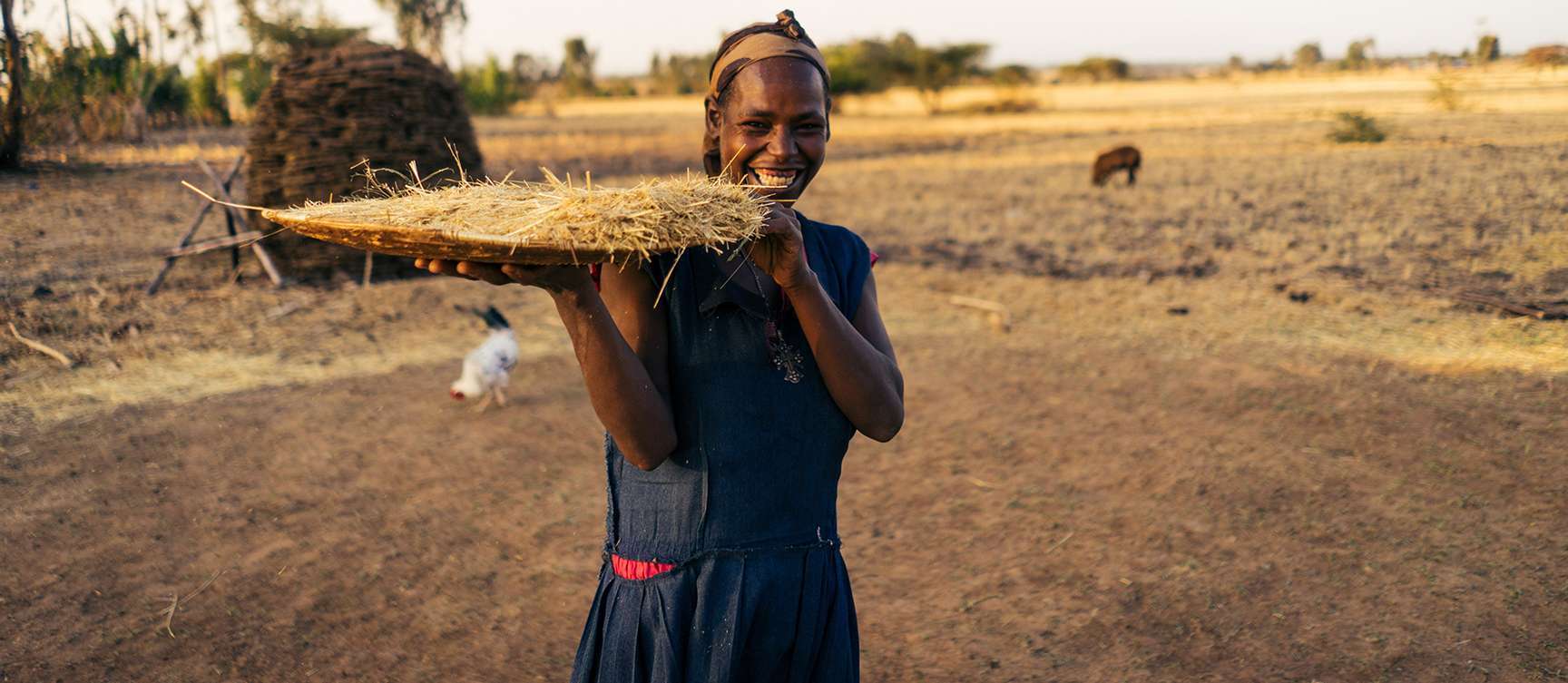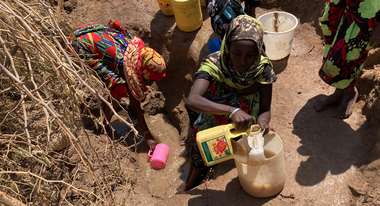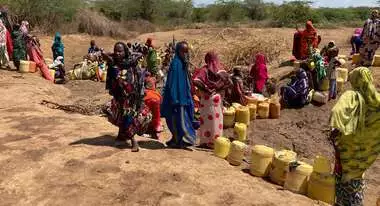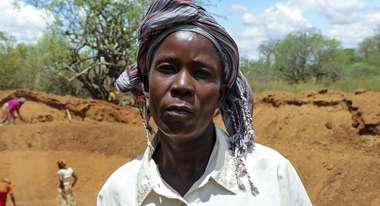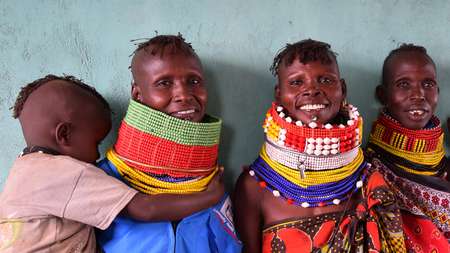
Hope for "Drought Widows"
It is five in the morning. The sky is still dark, and the air is cool. The baby on Aita Ngatotin’s back is breathing peacefully, having spent the whole night crying before finally falling asleep a few hours ago. Aita checks to see if the scarf holding her child is tied tightly enough. Then, she carefully squats down to heave a bundle of charcoal onto her head.
She starts heading for the Kakuma refugee camp in north-western Kenya. It has been weeks since her last proper meal, and the 25-kilogramme sack she needs to balance on her head for nearly 50 kilometres weighs heavily on her body. It will earn her the equivalent of four euros.
Droughts Hit Women Hardest
Until a few months ago, this long trek to Kakuma was a daily fact of Aita's life, presenting the only opportunity for her to earn some money for her family. The 36-year-old is one of the many “drought widows” in the region of Turkana who are now trying to provide for their families on their own.
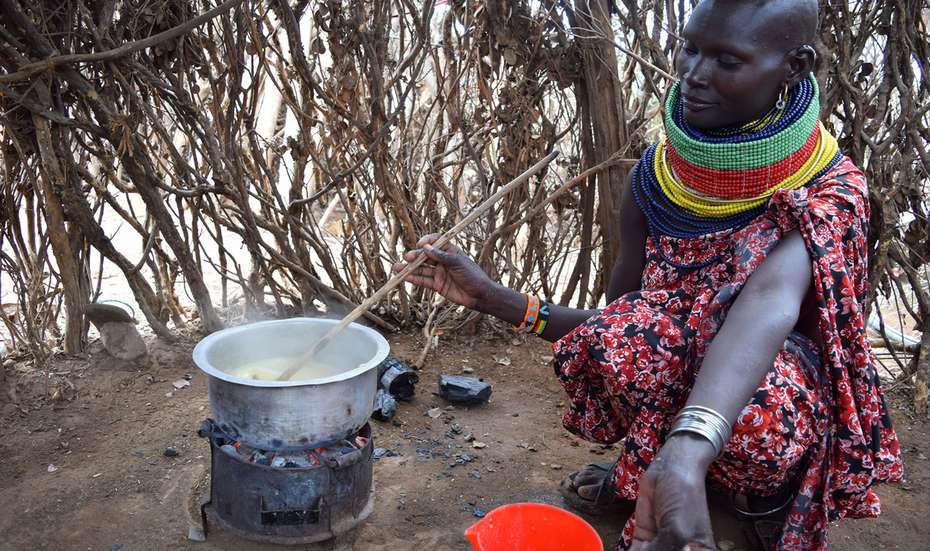
According to the Turkana County 2019 SMART survey, 25.6% of the population are suffering from "Global Acute Malnutrition". This can be traced back to the extended drought that holds the region in its grip. Pregnant and breastfeeding women are among the most severely affected and are often forced to complete heavy labour in a weakened condition. Welthungerhilfe is working on site with local partners such as Lokado to offer women and children a solid start towards a healthy and independent life in this especially difficult time.
New Hope For Turkana
“Lokado and Welthungerhilfe saved my family. I don’t know how many people here would have lost their lives without their help”, Aita says with relief. The change was sparked by clean drinking water, food packages, financial grants, and additional food for children and pregnant or breastfeeding women. The women of the village have since regained hope and pride in their lives.
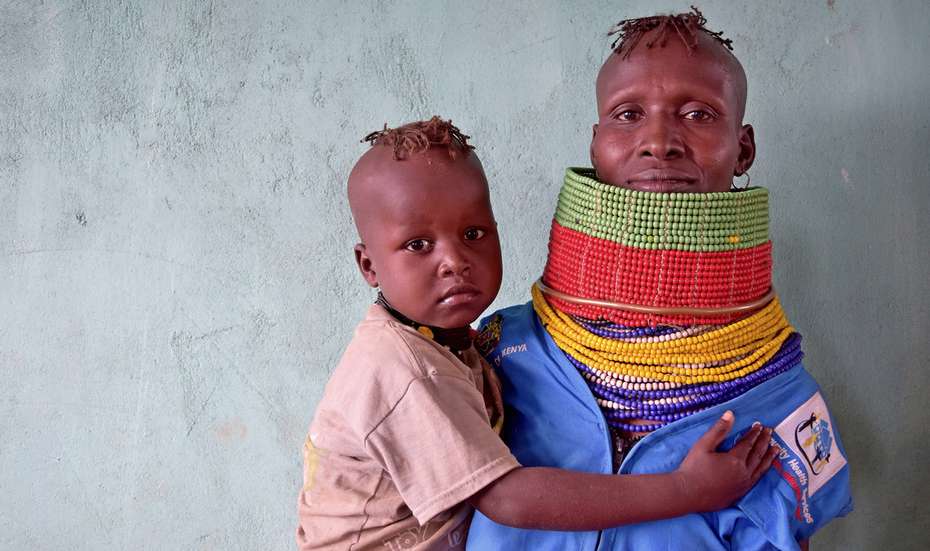
Thanks to the new water supply points nearby, they no longer have to draw water from the polluted lake, filled with floating animal cadavers. They are no longer ashamed to ask for credit in the village shop because they know they will be able to repay the money at the end of the month. This support is helping them finally earn enough to cover their children’s dietary needs and school expenses including uniforms, books, and shoes. However, long-term solutions still need to be found.
Thanks to your help, none of us died. However, we still need a reliable way to stay alive.
Kula Napasi project participant from the region of Turkana44-year-old Kula Napasi is joining Aita and 1,200 other women in measures that will secure their livelihoods and improve their diets, including through vegetable gardens, poultry farms, village savings and credit programmes, and nutritional and culinary courses. The project is showing them the way to a sustainable future.
How Welthungerhilfe Is Helping People In Turkana
- Nutrition education: Group classes are teaching 1,200 women about topics including infant nutrition, breastfeeding, supplementary nutrition, maternal nutrition, and how to deal with special circumstances such as premature birth or disability. Women and mothers who have demonstrated good abilities in childcare and household tasks are held up as examples within the groups and encouraged to offer advice to other women.
- Training in vegetable cultivation: This training, offered to 300 women, focuses on a variety of cultivation methods including terraced gardens and submerged wet patches. The women are encouraged to plant small gardens and cultivate nutritious native vegetables such as moringa or amaranth.
- Training in livestock husbandry: Up to 450 women in Turkana West are being trained in improved livestock husbandry practises. The goal is to increase milk production during the dry season and improve the animals’ physical condition.
- Village savings and loan groups: Through loans and allotments, village savings and loan groups are helping the 900 participating women help themselves and their families improve their diets and overall quality of life.
Kula and Aita can hardly wait to apply their new skills. Having had their circumstances dictated to them by the droughts for so many years, they are thrilled to finally have control over their own lives. Aita has one more request: “Please accept many more women into the project to strengthen our community! If more women can take control of their lives, we will never end up this desperate again.”





